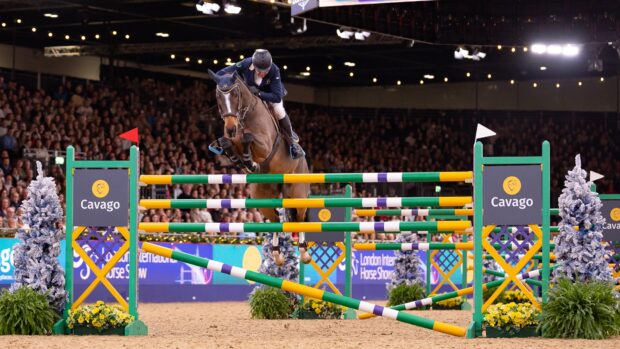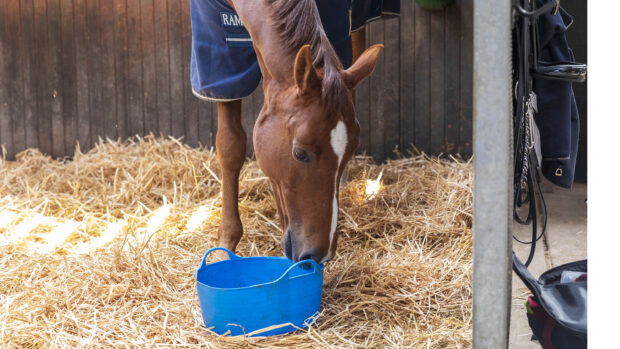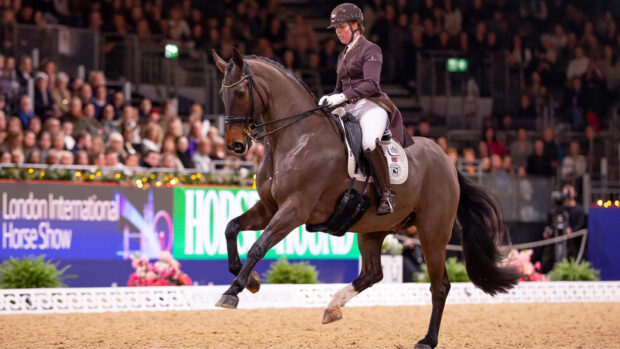British Dressage (BD) has called on everyone to take responsibility and uphold the highest standards of equine welfare, as it launches an action plan to take the sport forward.
BD’s four-year equine welfare action plan scrutinises governance, training and education and sport development, through the lens of horses’ wellbeing.
The news has been welcomed by World Horse Welfare, whose chief executive Roly Owers told H&H that the action plan is the “kind of change needed in horse sport”.
The BD announcement stated that it is “determined to use the events of this year as a positive catalyst for change”, and BD chief executive Jason Brautigam said it is “our collective responsibility to ensure that we maintain the highest standards of equine health, care and wellbeing”.
“To achieve this, we must all consider our own values, attitudes and behaviours, whether that involves looking after horses at home, training them in preparation for competition or riding in the arena,” he said.
“We all have a role to play when it comes to equine welfare, from officiating at a show to watching as a spectator – we can no longer be passive bystanders.
“If we all seek to enhance our knowledge and understanding of horses, to improve the level of care that we provide, we can make a tangible difference to their lives, while securing long-term public trust and confidence in our sport.
“The BD equine welfare action plan is just the starting point, and we are fully committed to working with all our members, stakeholders and partners to deliver positive change over the next strategic cycle.”
BD has conducted a full review of its equine welfare policies, rules and regulations, including the members’ code of conduct and disciplinary procedures, and has published a whistleblowing policy.
Disciplinary procedures will include formal warnings for minor offences, to encourage best practice at all times, while more serious breaches have a clearly defined framework for the range of sanctions. There will also be provision to support training and education for repeat offenders.
Other action includes the appointment of a designated welfare and officials officer to act as the initial point of contact for escalating welfare-related issues. BD is investing further in steward development and has long-term plans to establish voluntary “welfare marshals”, who would expand the presence of officials at BD shows.
Education modules on horse care, stable management, fitting tack and equipment and equine behavioural psychology will be available to all BD members. Equine welfare is also being embedded in training for officials and coaches.
BD is undertaking a “comprehensive review” of sport rules, including judging systems, test content and marking schemes “to ensure that we recognise and reward a harmonious partnership that accentuates the horse’s natural way of going”.
The organisation is creating clearer guidelines for officials on the correct use of aids, tack and equipment, with the goal of rewarding good training practices and improving judging consistency. It is also exploring how it can adapt its rider skills tests to promote correct use of aids, seat, balance and way of going, with the potential for these to be used in future to qualify for progression through the levels.
Mr Owers told H&H that World Horse Welfare “applauds” BD for putting equine welfare “at the core of their strategy, which is where it belongs”.
“We especially welcome how the plan emphasises that it is everyone’s responsibility to play a role in delivering these changes,” he said.
“Promoting a truly harmonious relationship between horse and rider across all aspects of the discipline – from scoring in competition, to training and how the sport develops – is the right focus. So is the increased emphasis on the mental wellbeing of the horse with the addition of equine behavioural psychology in their training programme.
“The more sports that adopt the five domains model of animal welfare assessment, which has mental state at its centre and is fundamental to giving horses a good life, the better for horses and the future of horse sport.”
British Equestrian chief executive Jim Eyre told H&H that the federation “fully commends the proactive equine centric approach” that BD is taking.
“The privilege of horsemanship comes with a serious responsibility which we must all live by and honour,” said Mr Eyre. “Working with them and our other member bodies, we will collectively strive for the highest standards in equine welfare to ensure positive relationships, where the horse comes first.”
- To stay up to date with all the breaking news throughout major shows such as London International and more, subscribe to the Horse & Hound website
You may also be interested in:

Subscribe to Horse & Hound magazine today – and enjoy unlimited website access all year round

What is a good life for a horse? We have to listen to – and act on – what they tell us

Anna Ross: ‘Systems need to stand up to scrutiny, be logical and understandable’




